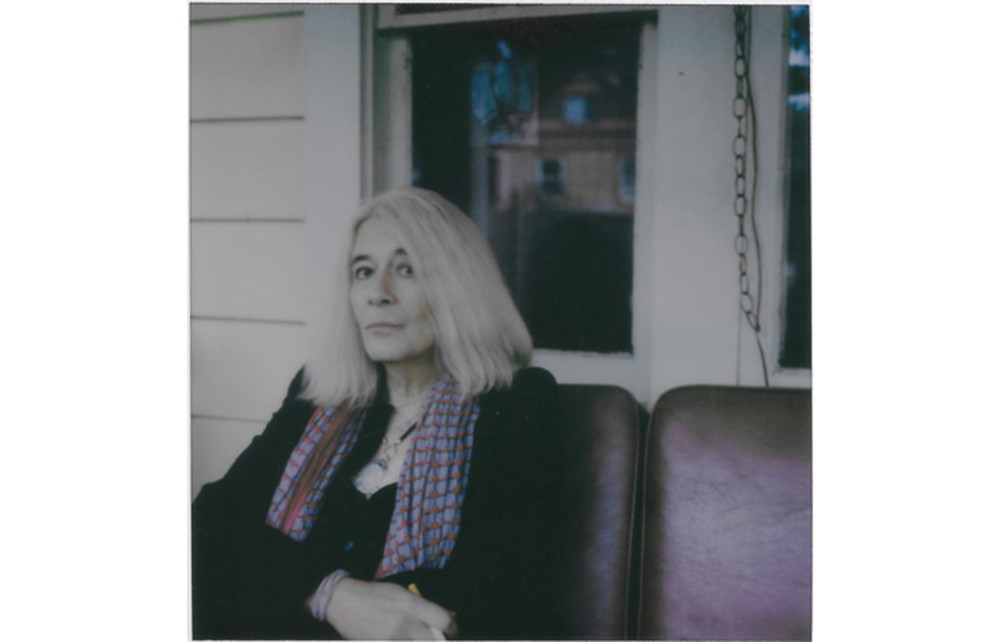Lucy Sante concludes her thoughtful and occasionally poetic memoir with the words: ‘Now I have been made whole.’ Before transitioning at the age of 66 she had lived her life as a deeply divided man. This is an affecting book that could help move the trans debate forward from its currently undignified state of abuse and polarity.
Sante interweaves the story of the first 18 months of her transition with that of the first three decades of her biography. Her parents emigrated to New Jersey from Belgium, initially when she was four (there were subsequent toings and froings). She writes a lot about her identity as a working-class Walloon, an ‘only child of isolated immigrants’, and notably about her relationship with her pious, difficult mother.
Sante won a scholarship to a Jesuit high school in New York City (‘my ticket out of jail’), proceeded to Columbia, and after a druggy interlude in early 1980s New York (‘the city was a vast trash heap of western civilisation’), with cameo appearances by Jean-Michel Basquiat and Nan Goldin, she progressed uptown to a job at the New York Review of Books. ‘During those same years,’ she writes, ‘I thought about my trans identity every single day.’
Sante enjoyed a successful career as a non-fiction writer. Her books include The Factory of Facts (1990), about Belgian emigration in general and her native town in particular, and won a Grammy for album notes written for a folk collection. She married twice, had a son and has at no point been ‘attracted to men’. ‘I’m a writer before I’m anything else,’ she declares. ‘I’m European and American, poised midway between those poles in both attitude and citizenship status.’
In 2021 Sante found a gender-swapping feature on an app: you scan in a photo and the app changes your gender. As everyone else was seeing themselves in surgical masks, Sante suddenly saw herself as she should have been (these photographs appear as integrated images in the text). When she looked at the first one, ‘I felt something liquefy in the core of my body’. She had always known, though she does not include a now-standard ‘moment’ narrative: ‘I can’t say with any kind of certainty just when the idea that I might or should be a girl first took hold, but probably it was around age nine or ten.’ She writes eloquently about ‘why I repressed my lifelong desire to be a woman’; one reason was ‘the notion… that women would be disgusted and repelled by my transgender identity’. Another was ‘internalised transphobia’. She writes about ‘existential terror’ and the ‘complex dance of knowledge and denial’ that in effect absorbed her whole adult life.
For a year after the app discovery, Sante floated on the ‘pink cloud’, a euphoric state described in most transition memoirs, and, as she acknowledges, in addiction-recovery accounts too. ‘Somehow now the dam has burst, the scales have fallen away, the fog has lifted.’ The breakup of her 14-year relationship with an understanding woman is presented with sensitivity and sadness. Episodes involving wigs are intentionally funny (‘I looked like Charley’s Aunt’). When she comes out to her students (she has been teaching writing at Bard College for 24 years), they ‘couldn’t give a rat’s ass’. On Zoom support groups she learns that ‘the range of trans people and experiences was vast beyond my reckoning’. One wonders why this fact is not acknowledged more often.
Almost everyone Sante meets in the trans community is her junior, and she has some interesting insights into the ‘older’ trans experience, not least the ‘invisibility’ of mature women. I also enjoyed her thoughts on the confounding relationship between certainty and doubt: how one can be so sure of something yet still ‘require proof’ or affirmation.
The style of I Heard Her Call My Name is at times self-consciously obfuscated: ‘I curated my surroundings as a kind of rebus of cultural signs.’ It is hard to keep prose alive while clobbering it with phrases such as ‘full cisgender heterosexual normality’, and mixed metaphors don’t help: ‘It was the eye of the cognitive needle I had to pass through in order to break out of the prison of denial.’
This is a story of self-realisation: ‘My secret poisoned my entire experience of life’, Sante declares – and she did not appreciate the facts of her life ‘until transitioning lifted the veil’. She notices that ‘many things about my new being felt familiar, as if I were remembering them’. As she writes:
It is clear from the historical record and from various non-western cultures that there have always been people like us, although very few express their transness because of the exceptionally strong taboo.







Comments